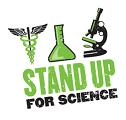Are you a denialist?
How to be a denialist
Martin McKee, an epidemiologist at the London School of Hygiene and Tropical Medicine who also studies denial, has identified six tactics that all denialist movements use. "I'm not suggesting there is a manual somewhere, but one can see these elements, to varying degrees, in many settings," he says (The European Journal of Public Health, vol 19, p 2).
- 1. Allege that there's a conspiracy. Claim that scientific consensus has arisen through collusion rather than the accumulation of evidence.
- 2. Use fake experts to support your story. "Denial always starts with a cadre of pseudo-experts with some credentials that create a facade of credibility," says Seth Kalichman of the University of Connecticut.
- 3. Cherry-pick the evidence: trumpet whatever appears to support your case and ignore or rubbish the rest. Carry on trotting out supportive evidence even after it has been discredited.
- 4. Create impossible standards for your opponents. Claim that the existing evidence is not good enough and demand more. If your opponent comes up with evidence you have demanded, move the goalposts.
- 5. Use logical fallacies. Hitler opposed smoking, so anti-smoking measures are Nazi. Deliberately misrepresent the scientific consensus and then knock down your straw man.
- 6. Manufacture doubt. Falsely portray scientists as so divided that basing policy on their advice would be premature. Insist "both sides" must be heard and cry censorship when "dissenting" arguments or experts are rejected.
The article also sheds some light on why some instigators of denialist movements are doing what they do:Denialism has already killed. AIDS denial has killed an estimated 330,000 South Africans. Tobacco denial delayed action to prevent smoking-related deaths. Vaccine denial has given a new lease of life to killer diseases like measles and polio. Meanwhile, climate change denial delays action to prevent warming. The backlash against efforts to fight the flu pandemic could discourage preparations for the next, potentially a more deadly one.
If science is the best way to understand the world and its dangers, and acting on that understanding requires popular support, then denial movements threaten us all.
If you are a denialist, you may need psychological help.Kalichman, however, feels that everyday reasoning alone is not enough to make someone a denialist. "There is some fragility in their thinking that draws them to believe people who are easily exposed as frauds," he says. "Most of us don't believe what they say, even if we want to. Understanding why some do may help us find solutions."
He believes the instigators of denialist movements have more serious psychological problems than most of their followers. "They display all the features of paranoid personality disorder", he says, including anger, intolerance of criticism, and what psychiatrists call a grandiose sense of their own importance. "Ultimately, their denialism is a mental health problem. That is why these movements all have the same features, especially the underlying conspiracy theory."
Labels: denialism, mental health, paranoid personality disorder





0 Comments:
Post a Comment
<< Home